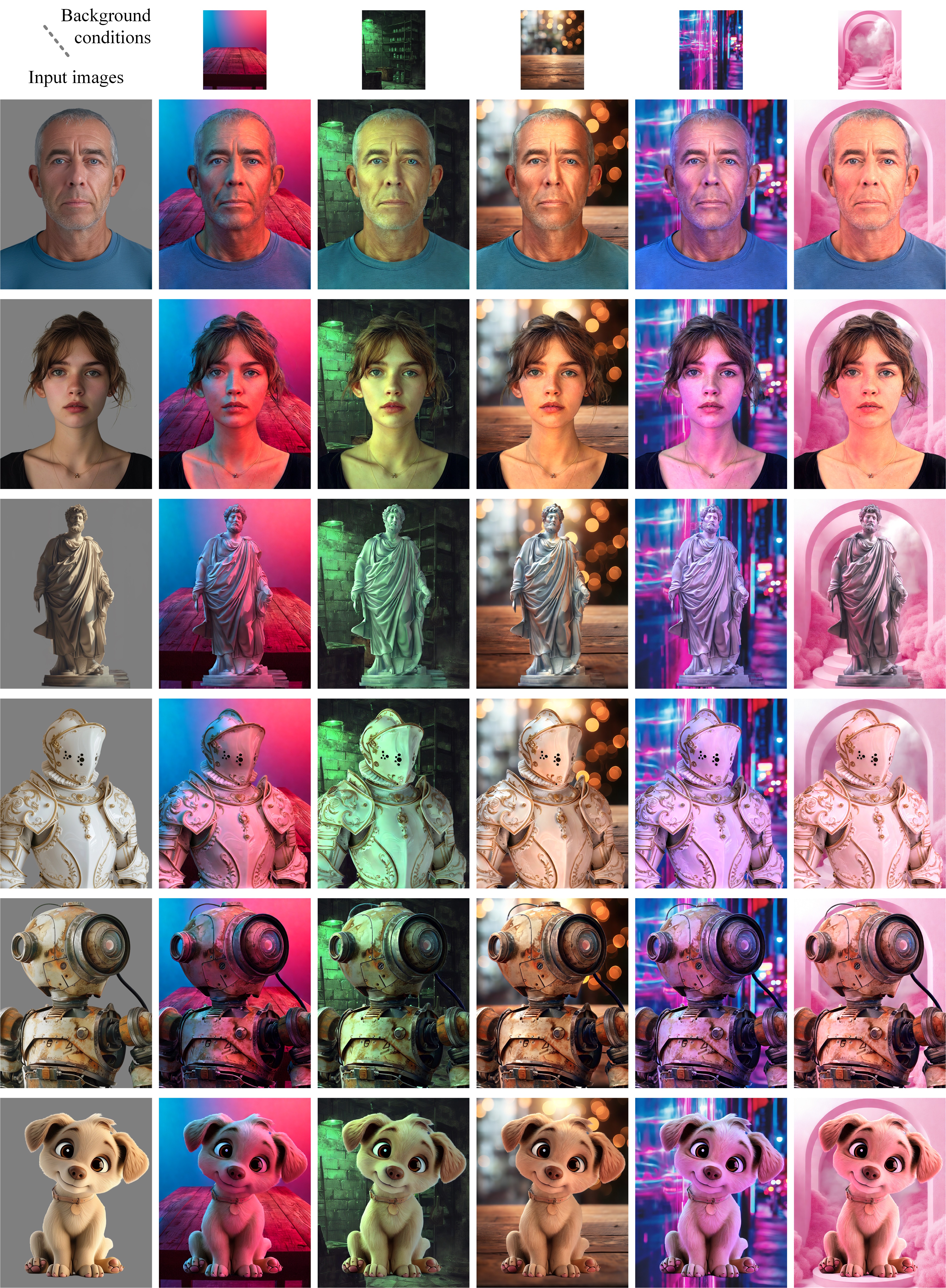




3Dprinting (178) A.I. (833) animation (348) blender (206) colour (233) commercials (52) composition (152) cool (361) design (646) Featured (79) hardware (311) IOS (109) jokes (138) lighting (288) modeling (144) music (186) photogrammetry (189) photography (754) production (1287) python (91) quotes (496) reference (314) software (1350) trailers (305) ves (549) VR (221)
Category: A.I.
-
Canva acquires Leonardo.ai
https://techcrunch.com/2024/07/29/canva-acquires-leonardo-ai-to-boost-its-generative-ai-efforts
The financial terms of the deal weren’t disclosed, but Canva co-founder and chief product officer Cameron Adams said it’s a mix of cash and stock. All of Leonardo.ai’s 120 employees will be joining Canva, including the executive team.
“Leonardo will continue to run independently of Canva with a focus on rapid innovation, research and development, now backed by Canva’s resources,” Adams told TechCrunch. “We’ll keep offering all of Leonardo’s existing tools and solutions. This acquisition aims to help Leonardo develop its platform and deepen their user growth with our investment, including by expanding their API business and investing in foundational model R&D.”
-
Autodesk acquires Wonder Dynamics
This strategic move supports Autodesk’s goal to democratize creative tools and foster innovation in the media and entertainment industry. Terms of the deal were not disclosed.
-
Ridley Scott Wants to ‘Embrace’ AI for Post-Production
Despite embracing technology, the “Blade Runner” and “Alien” director has long incorporated the fear of AI in his stories onscreen and knows better than most about its ramifications. Scott previously told Rolling Stone in November 2023 that when it came to his concerns about artificial intelligence broadly, he said that AI was “dangerous” and akin to a “technical hydrogen bomb.”
-
David Cahn – AI’s $600B Question, is it a sustainable bubble?
https://www.sequoiacap.com/article/ais-600b-question
The expanding economic impact of AI, highlights a significant gap between AI infrastructure investments and actual revenue generation. Despite easing GPU shortages and increased investments by cloud providers, AI-related revenue, particularly dominated by OpenAI, remains insufficient to justify the massive capital expenditures. The analysis reveals that this gap has grown from $125 billion to $500 billion, posing challenges for the AI industry while emphasizing the need for realistic expectations and sustainable value creation.
OpenAI training and inference costs could reach $7bn for 2024, AI startup set to lose $5bn – report
AI: Are we in another dot-com bubble?
The power of AI will transform every facet of our society, from the micro changes in our day-to-day lives to the macro changes in global geopolitics. It will challenge our values and assumptions and make us reconsider what it means to be human. It is inevitable that some capital will be wasted getting there. We may even experience a bubble or two. But this is part of the growing pains of advancing humankind. Society, like our individual lives, seldom take the shortest route. As to the argument that we are in a bubble right now, we think it deserves some reconsidering.
https://kelvinmu.substack.com/p/ai-are-we-in-another-dot-com-bubble
-
GoldmanSachs.com – GEN AI: TOO MUCH SPEND, TOO LITTLE BENEFIT?
Tech giants and beyond are set to spend over $1tn on AI capex in coming years, with so far little to show for it. So, will this large spend ever pay off? MIT’s Daron Acemoglu and GS’ Jim Covello are skeptical, with Acemoglu seeing only limited US economic upside from AI over the next decade and Covello arguing that the technology isn’t designed to solve the complex problems that would justify the costs, which may not decline as many expect. But GS’ Joseph Briggs, Kash Rangan, and Eric Sheridan remain more optimistic about AI’s economic potential and its ability to ultimately generate returns beyond the current “picks and shovels” phase, even if AI’s “killer application” has yet to emerge. And even if it does, we explore whether the current chips shortage (with GS’ Toshiya Hari) and looming power shortage (with Cloverleaf Infrastructure’s Brian Janous) will constrain AI growth. But despite these concerns and constraints, we still see room for the AI theme to run, either because AI starts to deliver on its promise, or because bubbles take a long time to burst.
Local copy below
-
Pallaidium – a free and open source genAI movie studio integrated into the free Blender video editor
https://github.com/tin2tin/Pallaidium/
Features
Text to video Text to audio Text to speech Text to image Image to image Image to video Video to video Image to text ControlNet OpenPose ADetailer IP Adapter Face/Style Canny Illusion Multiple LoRAs Segmind distilled SDXL Seed Quality steps Frames Word power Style selector Strip power Batch conversion Batch refinement of images. Batch upscale & refinement of movies. Model card selector. Render-to-path selector. Render finished notification. Model Cards One-click install and uninstall dependencies. User-defined file path for generated files. Seed and prompt added to strip name. -
59 AI Filmmaking Tools For Your Workflow
https://curiousrefuge.com/blog/ai-filmmaking-tools-for-filmmakers
- Runway
- PikaLabs
- Pixverse (free)
- Haiper (free)
- Moonvalley (free)
- Morph Studio (free)
- SORA
- Google Veo
- Stable Video Diffusion (free)
- Leonardo
- Krea
- Kaiber
- Letz.AI
- Midjourney
- Ideogram
- DALL-E
- Firefly
- Stable Diffusion
- Google Imagen 3
- Polycam
- LTX Studio
- Simulon
- Elevenlabs
- Auphonic
- Adobe Enhance
- Adobe’s AI Rotoscoping
- Adobe Photoshop Generative Fill
- Canva Magic Brush
- Akool
- Topaz Labs
- Magnific.AI
- FreePik
- BigJPG
- LeiaPix
- Move AI
- Mootion
- Heygen
- Synthesia
- Chat GPT-4
- Claude 3
- Nolan AI
- Google Gemini
- Meta Llama 3
- Suno
- Udio
- Stable Audio
- Soundful
- Google MusicML
- Viggle
- SyncLabs
- Lalamu
- LensGo
- D-ID
- WonderStudio
- Cuebric
- Blockade Labs
- Chat GPT-4o
- Luma Dream Machine
- Pallaidium (free)
-
How Good Is ChatGPT at Coding, Really?
https://spectrum.ieee.org/chatgpt-for-coding
ChatGPT has not been exposed yet to new problems and solutions. It lacks the critical thinking skills of a human and can only address problems it has previously encountered. This could explain why it is so much better at addressing older coding problems than newer ones.
“ChatGPT may generate incorrect code because it does not understand the meaning of algorithm problems, thus, simple error feedback information is not enough,”
-
Magnific.ai Relight – change the entire lighting of a scene
It’s a new Magnific spell that allows you to change the entire lighting of a scene and, optionally, the background with just:
1/ A prompt OR
2/ A reference image OR
3/ A light map (drawing your own lights)https://x.com/javilopen/status/1805274155065176489
-
Enhancing 3D Design: Ai texturing with Stable Projectorz – Image to 3D and Text to 3D Ai tools
https://stableprojectorz.com/lessons-and-videos/
https://lumalabs.ai/genie text to 3D
https://www.tripo3d.ai/app Image to 3D
https://www.vizcom.ai/ Web Sketching and design app
https://github.com/lllyasviel/Fooocus
COLLECTIONS
| Featured AI
| Design And Composition
| Explore posts
POPULAR SEARCHES
unreal | pipeline | virtual production | free | learn | photoshop | 360 | macro | google | nvidia | resolution | open source | hdri | real-time | photography basics | nuke
FEATURED POSTS
-
Cinematographers Blueprint 300dpi poster
-
AnimationXpress.com interviews Daniele Tosti for TheCgCareer.com channel
-
Tencent Hunyuan3D 2.1 goes Open Source and adds MV (Multi-view) and MV Mini
-
RawTherapee – a free, open source, cross-platform raw image and HDRi processing program
-
Free fonts
-
QR code logos
-
Mastering The Art Of Photography – PixelSham.com Photography Basics
-
ComfyUI FLOAT – A container for FLOAT Generative Motion Latent Flow Matching for Audio-driven Talking Portrait – lip sync
Social Links
DISCLAIMER – Links and images on this website may be protected by the respective owners’ copyright. All data submitted by users through this site shall be treated as freely available to share.


